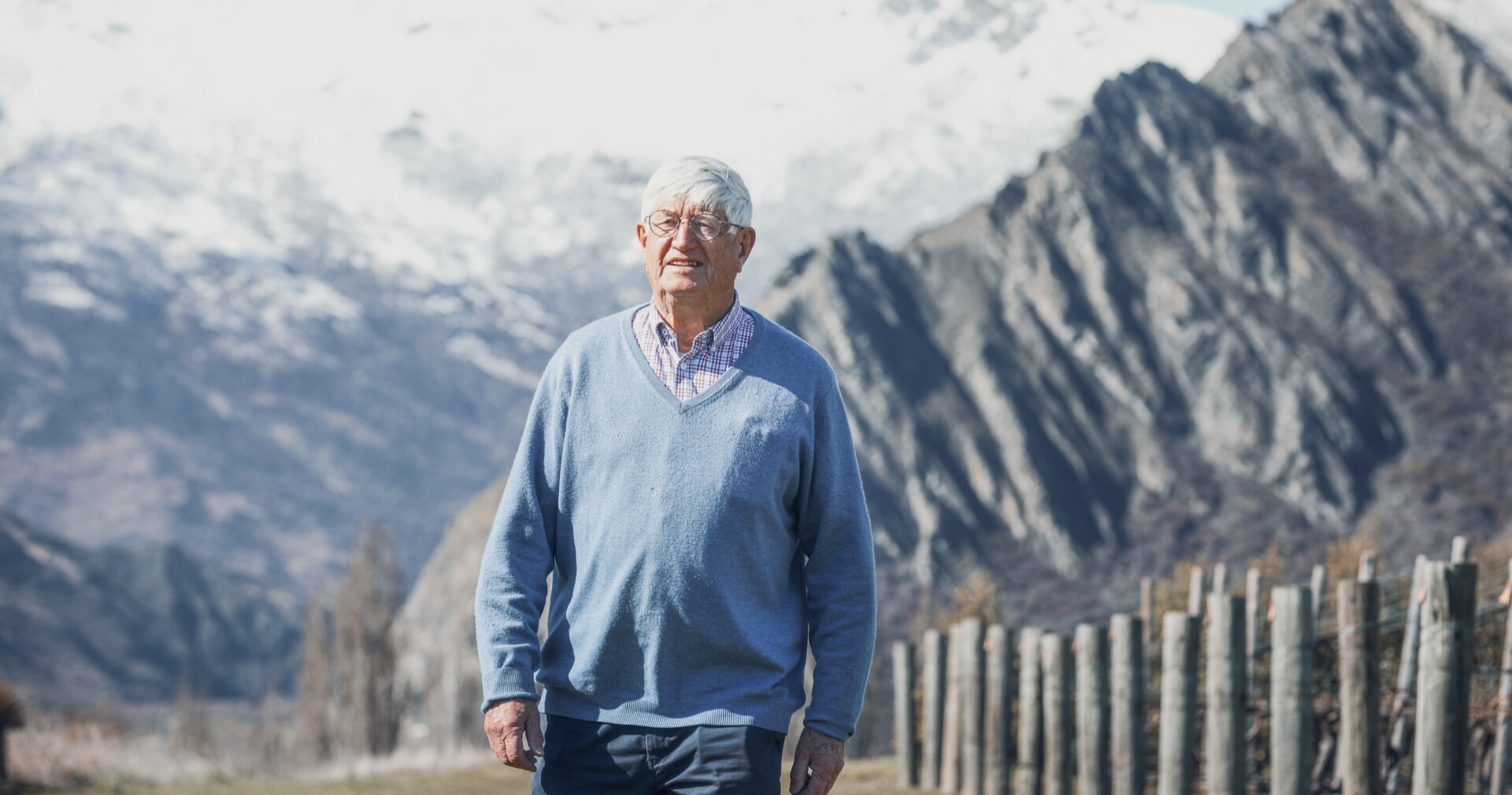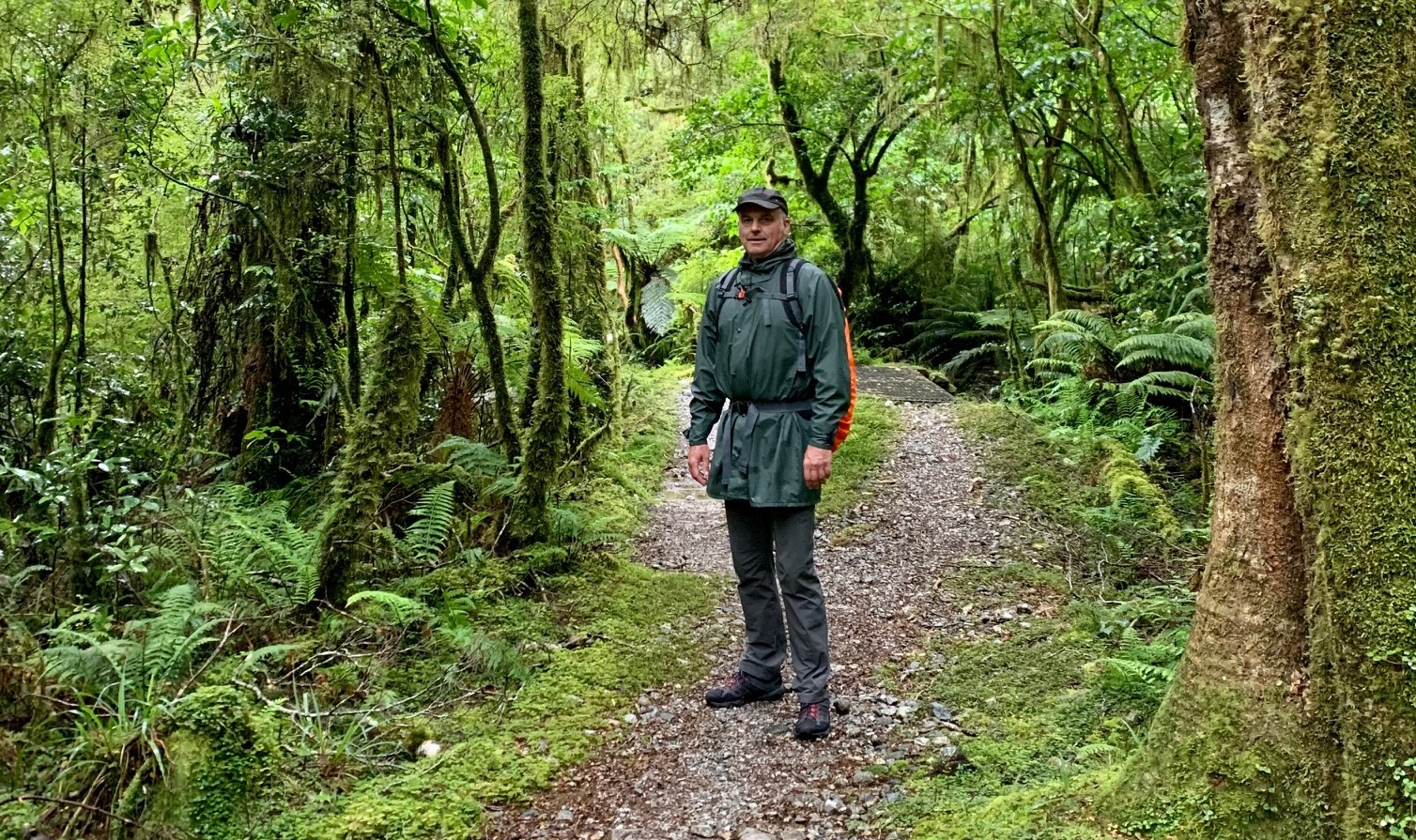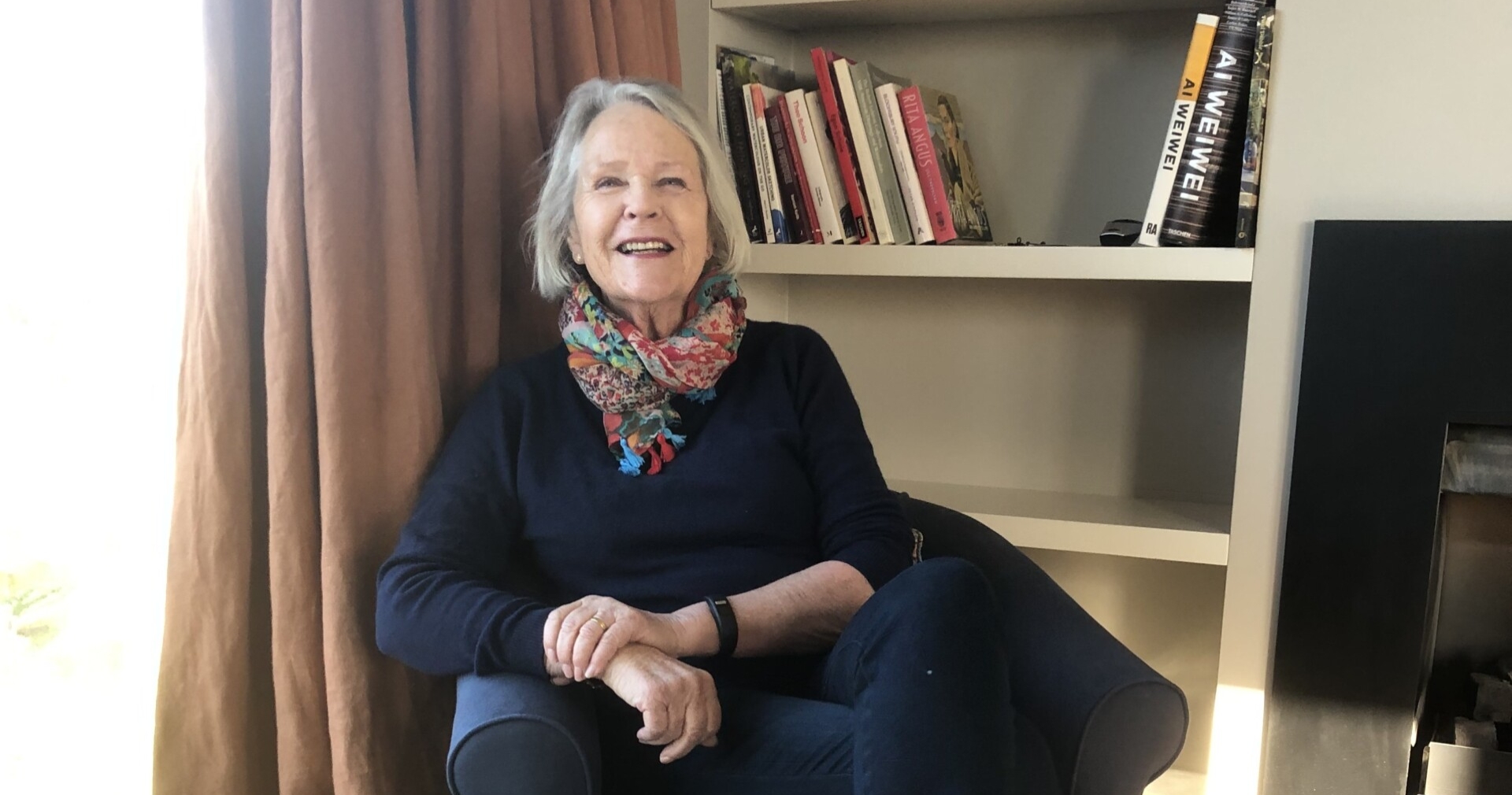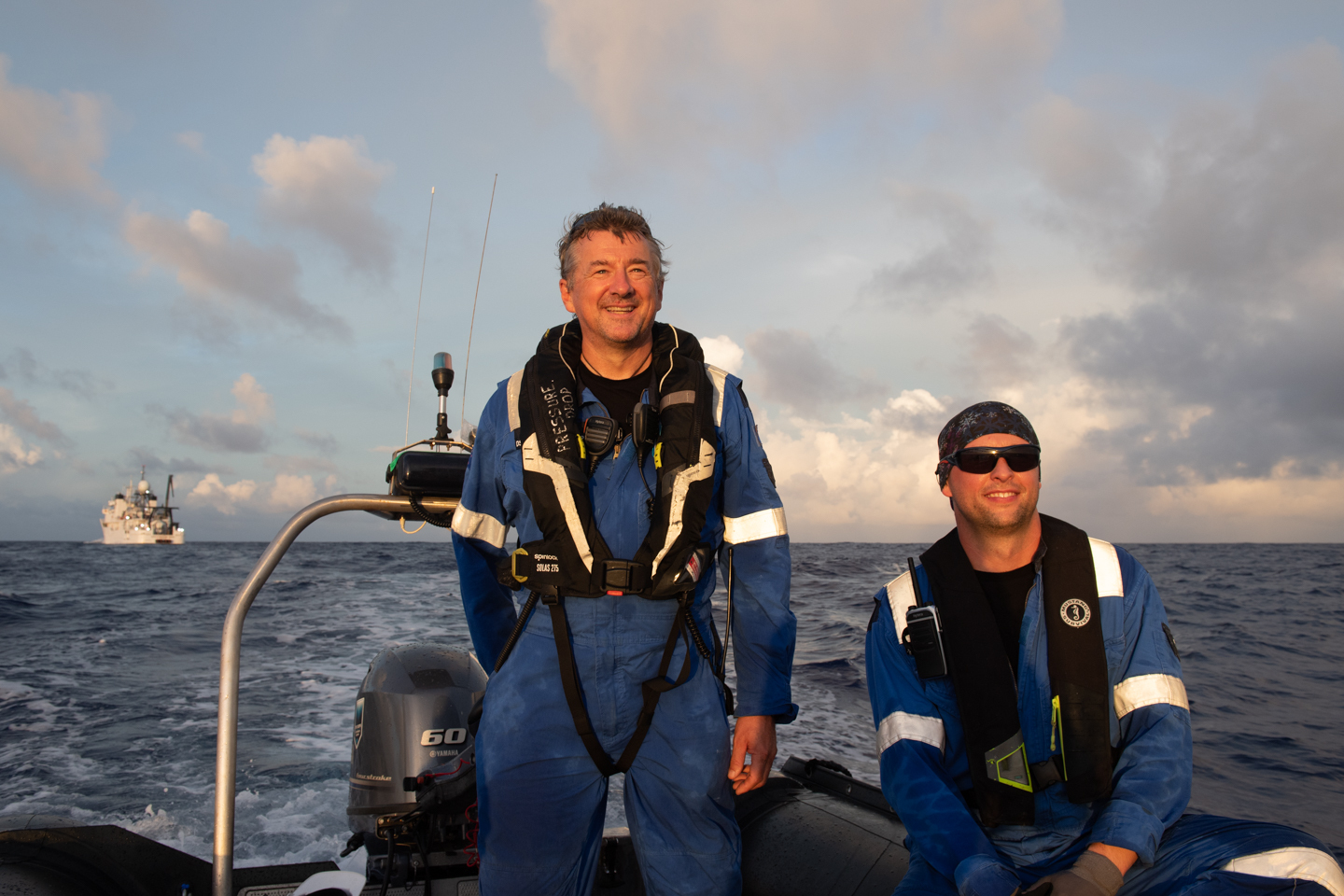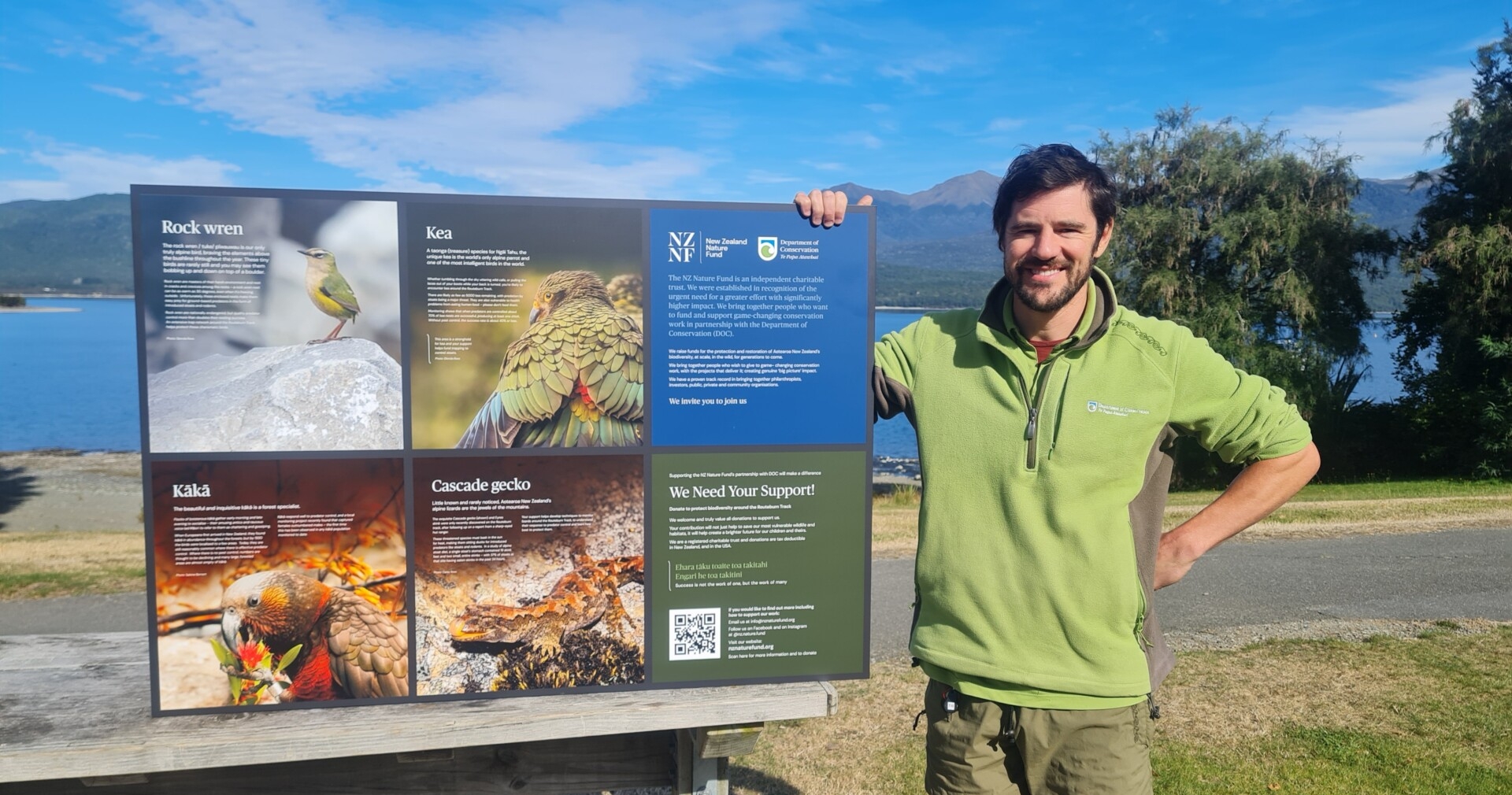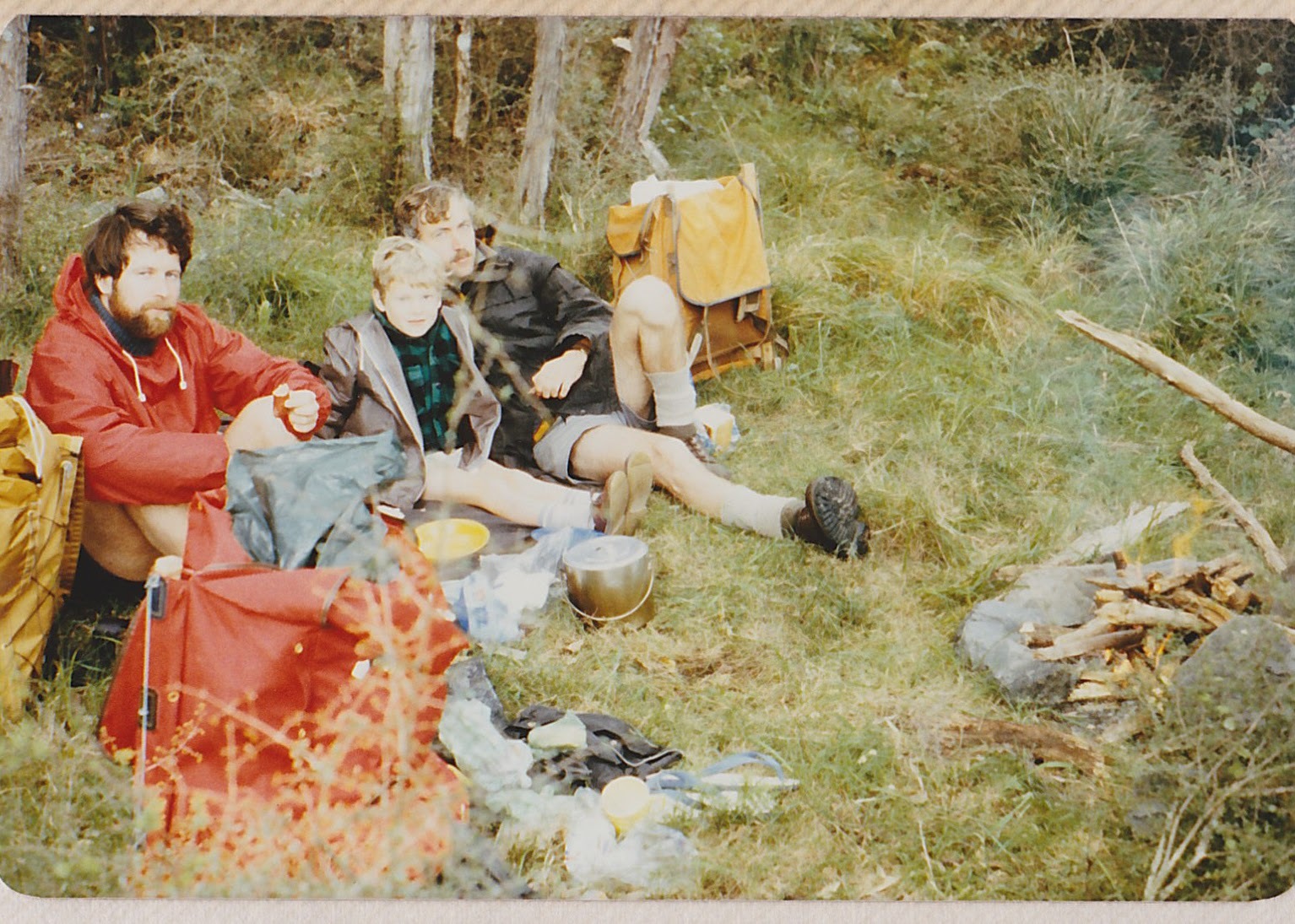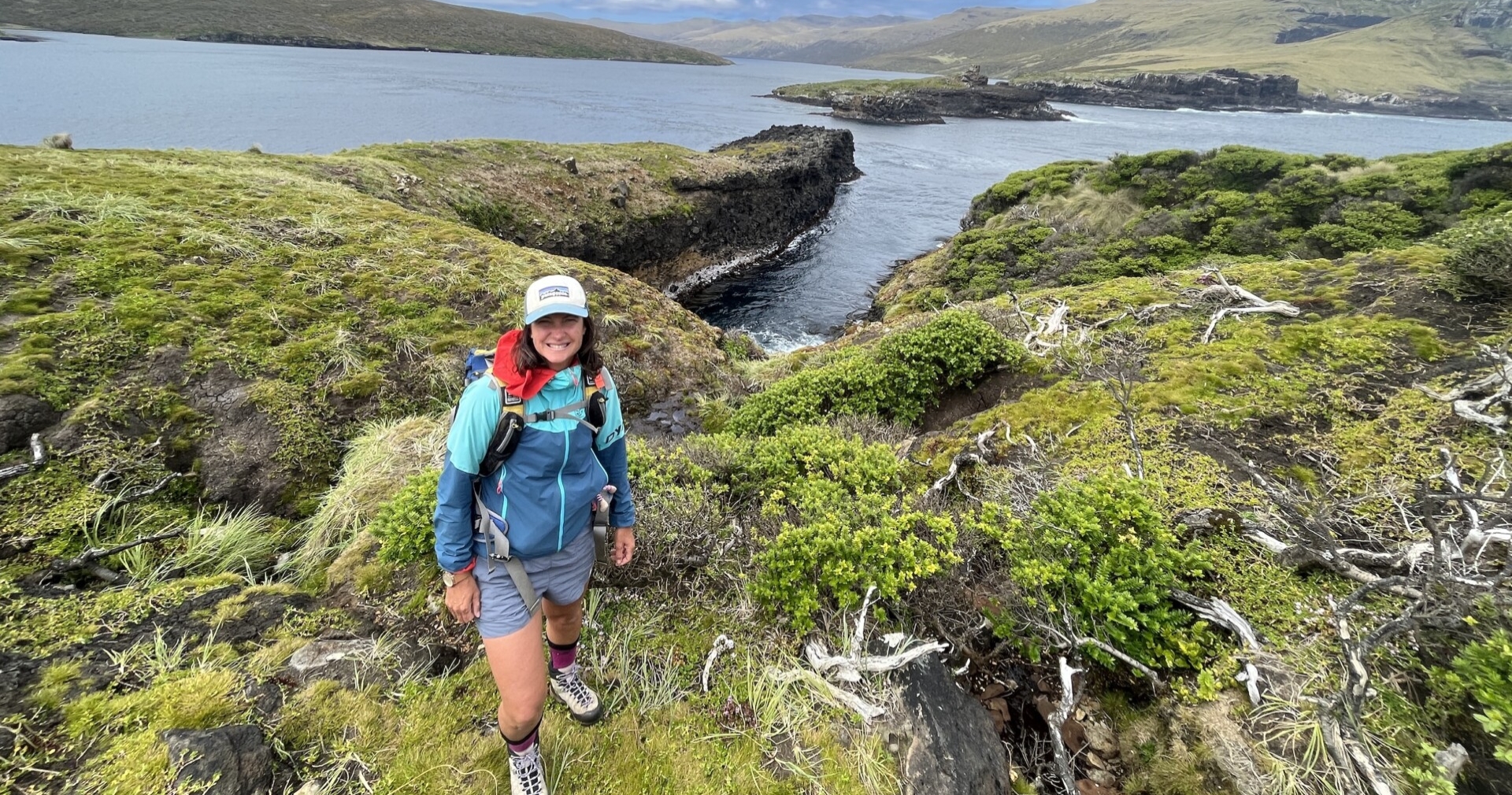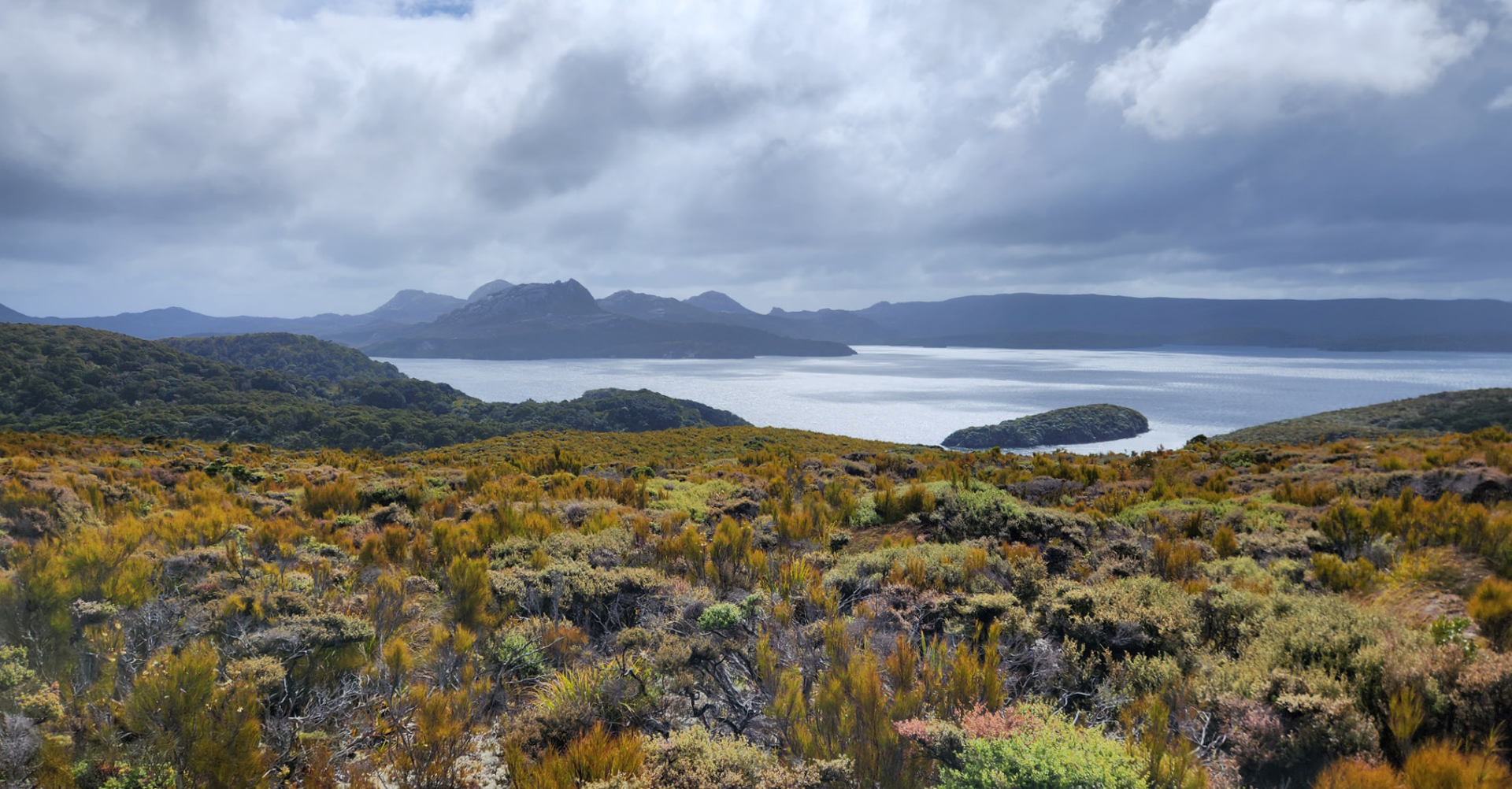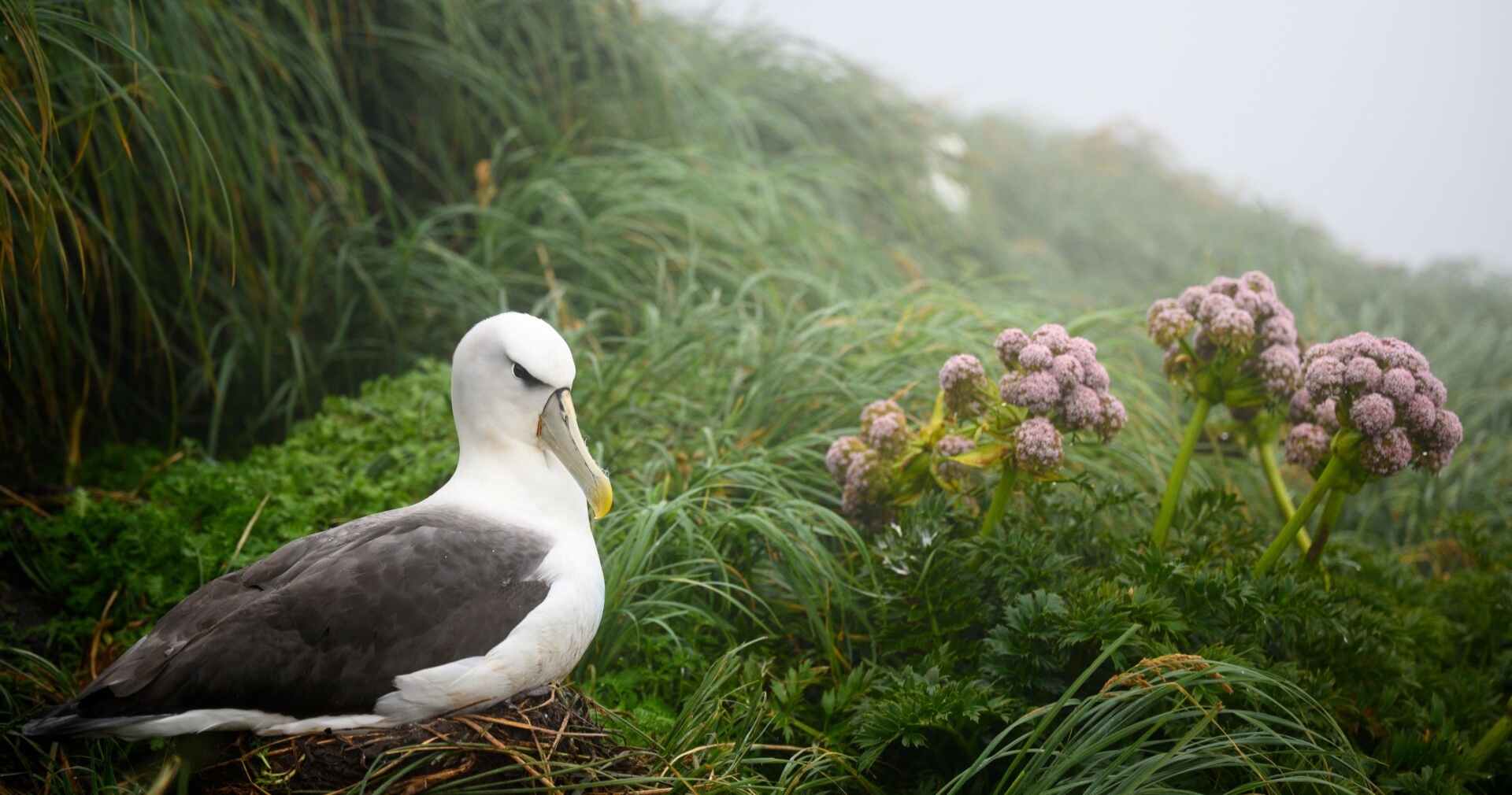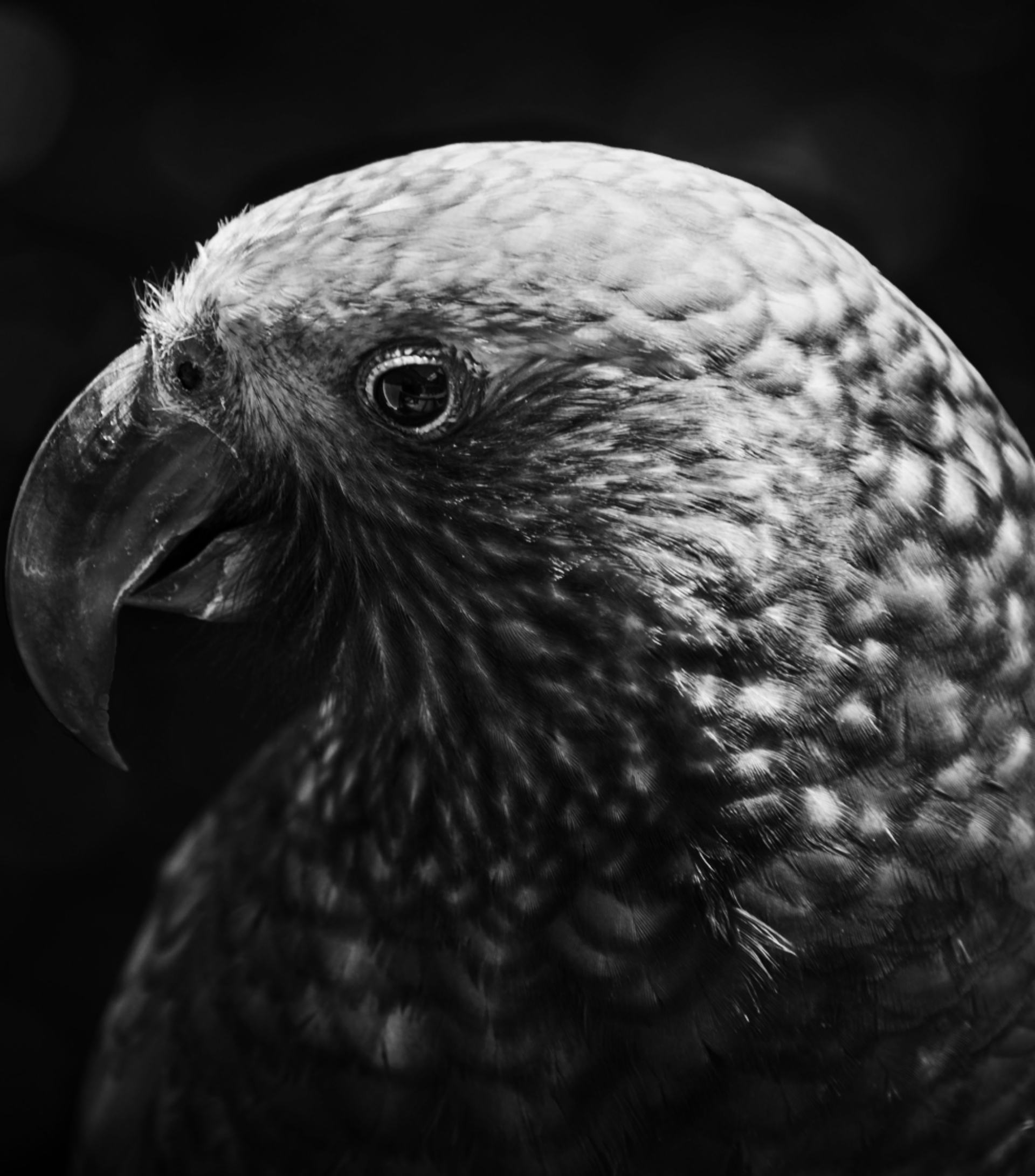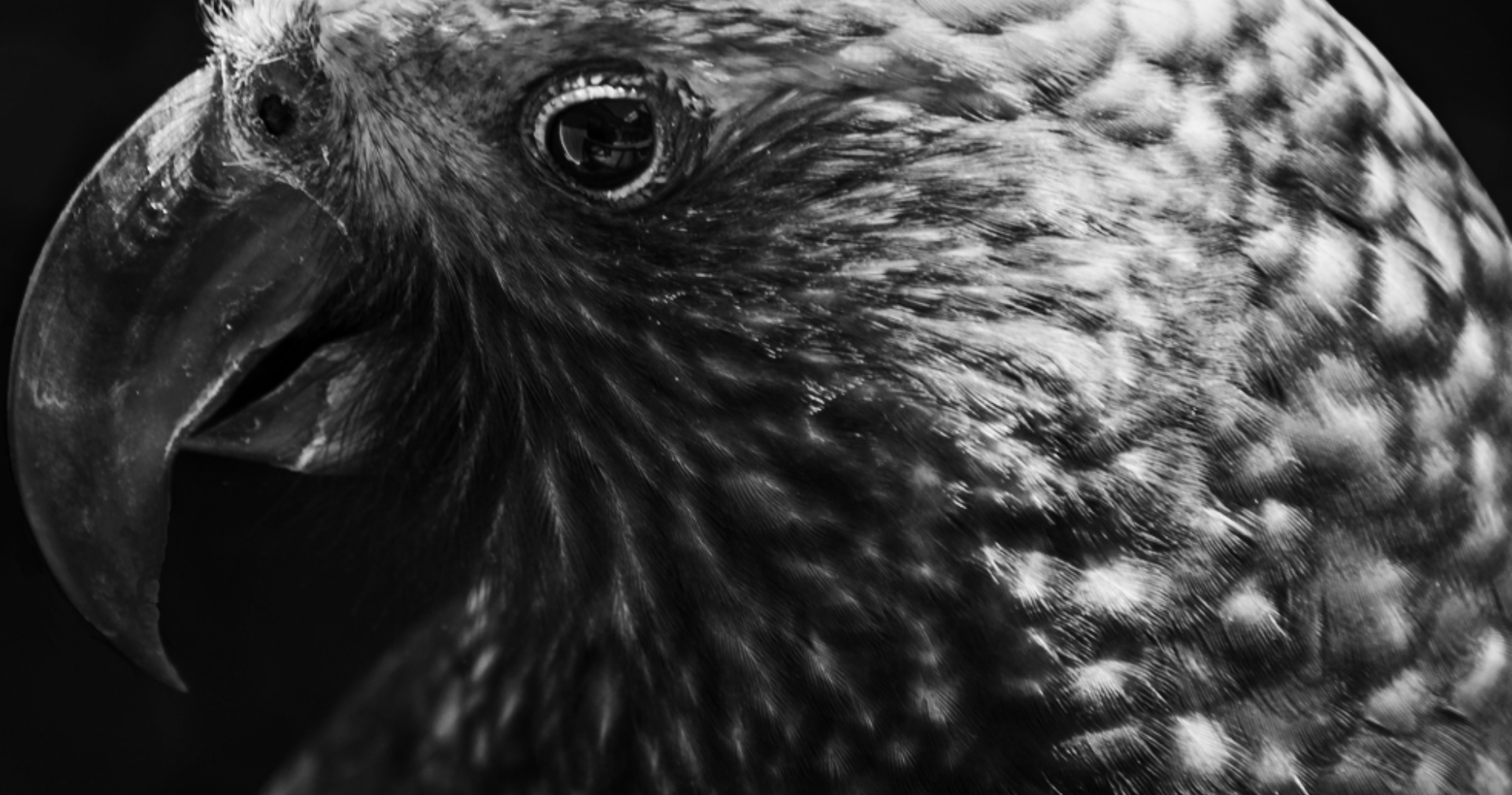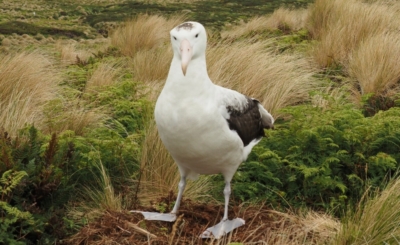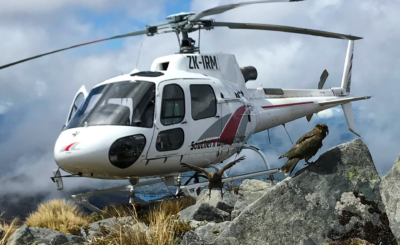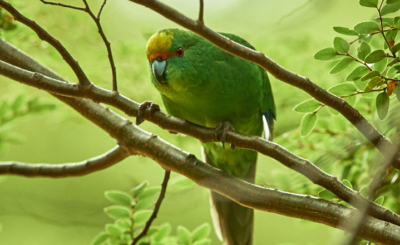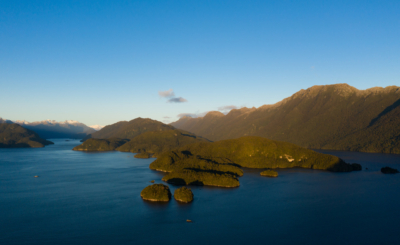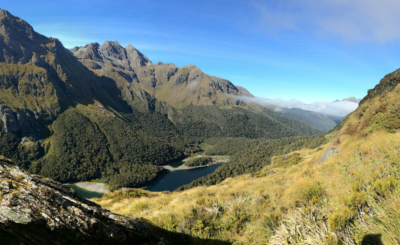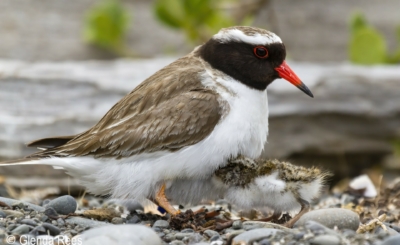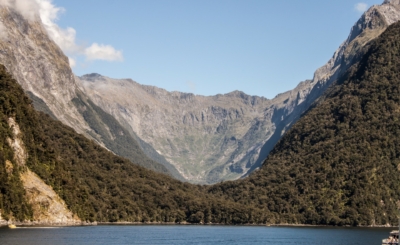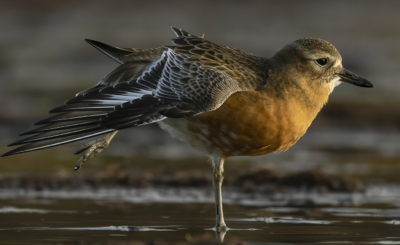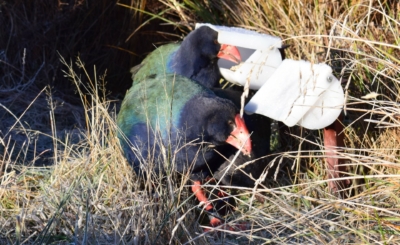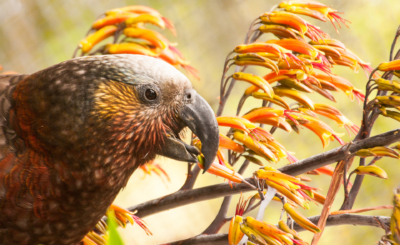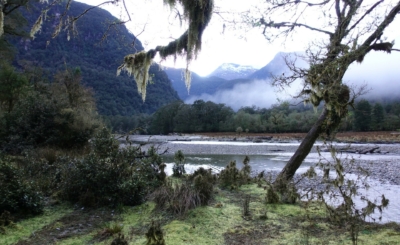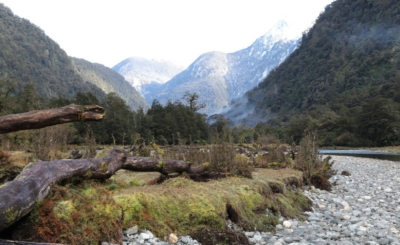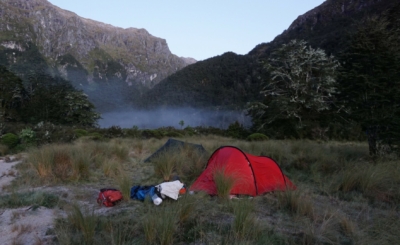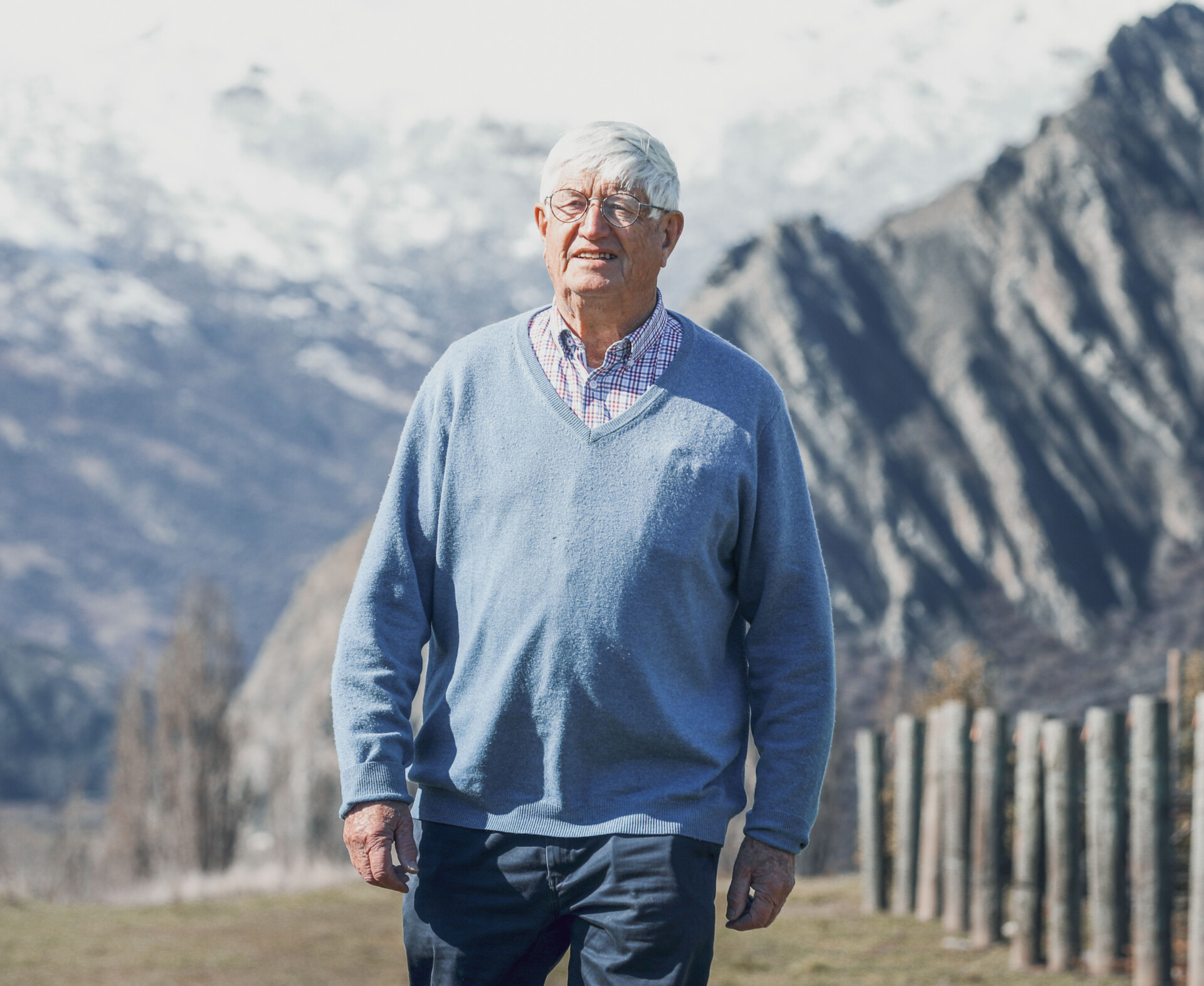
The reality is if we focus exclusively on solving the problems of climate change, or achieving pest free status by 2050, it will take decades to succeed and that is too long. What is the point of restoring nature if our native species are extinct? The New Zealand Nature Fund focuses on saving our most critically species, now.
One of our most critically endangered native birds, the Southern NZ Dotterel/Tūturiwhatu are nesting, hatching and ferociously guarding their newborn chicks right now, somewhere on the highest alpine reaches of Rakiura (Stewart Island).
Just 125 birds remain, and DOC’s four dedicated Southern NZ Dotterel rangers are racing the clock to find and monitor the birds and their nests. Their mission between now and the end of January is to tag every new chick and catch every feral cat threatening their survival. It’s an almost overwhelmingly difficult goal, with some nesting areas taking up to two days to reach, firstly by boat and then bushwhacking through boggy, dense forest canopy.
In July New Zealand Nature Fund was contacted by a passionate local supporter of the Southland NZ Dotterel concerned that DOC didn’t have the resources it needed to save the species from extinction. Within a month we had met with DOC representatives from head office and on the ground at Rakiura and agreed on a five year plan to provide $400,000 of funding to help save the Southern NZ Dotterel. The first tranche of funds we have raised in this campaign, $46,000 will soon be tendered out to contractors to cut more tracks through the forests leading into nesting areas. Ultimately this will free up the DOC team to maximise their feral cat control efforts and increase their presence over these crucial summer months.
Donations to our Southern Dotterel campaign to date range from ten dollars to ten thousand. Many of our donors support multiple New Zealand Nature Fund projects because they like and understand our very targeted approach, that funds can be invested and grown via earning interest or they are directed immediately to the specific endangered species without incurring administration or marketing costs.
Although most of our projects have come to us in a similar way to the Southern Dotterel through conversations with those working on the ground, we will never become an advocacy organisation. Our goal is to work alongside DOC and help it to save species from extinction by providing a funding vehicle for the New Zealand public. Presently we are managing donations for 14 projects. These include funding aviaries to breed the critically endangered Shore Plover and Kakariki for monitored release into the wild; the Southern Seabirds project which aims to educate the tuna fishing community and halt the extinction of the Antipodean Albatross and one of DOC’s most ambitious projects ever to rid Auckland Island of feral pigs, cats and mice.
There is great potential and precedent for private New Zealanders to help accelerate the fight against native species extinction. The New Zealand Nature Fund is modelled on the National Park Foundation in the United States (established 1967), and the Foundation for National Parks and Wildlife in Australia (established 1970). Both are official not for profit partners of their respective National Park Services and the primary vehicles for private citizens to contribute directly to their National Parks. In 2021 the Foundation for National Parks and Wildlife in Australia raised $4.4million directly from the Australian public while the National Park Foundation in the United States provided a massive US$89.4 million in direct grants and programme support.
In our 2022 Strategic Plan for the New Zealand Nature Fund we set the ambitious goal to have in place a $10 million endowment fund for conservation initiatives in place by 2030. We’ve got a long way to go, but when we travel around the mōtu meeting with donors and potential donors our message is simple, and well received. That is, more of us need to shift our focus from saving the planet, to stopping species extinction.
Denis Marshall was the Minister of Conservation from 1990 – 1996 and went on to establish the New Zealand National Parks and Conservation Foundation in 2000 (now known as the New Zealand Nature Fund). The New Zealand Nature Fund raises funds to fight against extinction of our most endangered native species. Actor Sam Neill is an ambassador for the Fund and its Board of Trustees includes former Director General of the Department of Conservation, Lou Sanson.


